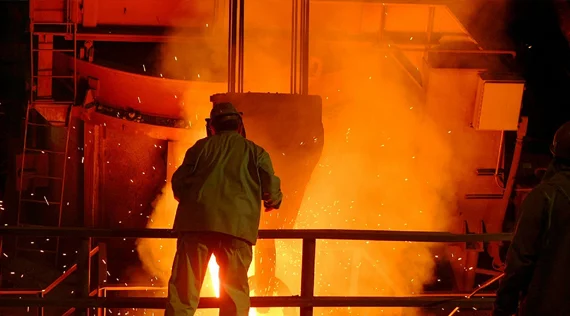
SPOKANE (Scrap Monster): The American Iron and Steel Institute (AISI) has submitted its comments on the damages caused by foreign trade barriers to the progress of US domestic industry, especially the country’s steel industry. The policy document, signed by Kevin Dempsey, AISI’s senior vice president of public policy & general counsel, was handed over to the Trade Policy Staff Committee (TPSC). The task force will review these comments for compilation in the USTR’s 2017 National Trade Estimate Report (NTE) on Foreign Trade Barriers.
Kevin Dempsey urged the United States Trade Representative (USTR) to include the trade barriers identified in the report in its 2017 National Trade Estimate Report on Foreign Trade Barriers. Dempsey expressed the hope that the USTR will continue to work towards elimination of foreign trade barriers that hamper worldwide trade between nations.
According to AISI, many countries have imposed strict barriers on export of raw materials, in an attempt to ensure abundant supply of these materials to domestic manufacturers. Some countries have imposed high export duty, while others have set export quotas. Also, some countries have further tightened export licensing requirement, thus making it difficult for exporters to ship the raw materials out of the country. The document states that many of the restrictions are in violation of the World Trade Organization (WTO) agreements.
Many foreign countries are increasingly implementing policies to restrict imports. Such measures are found to protect domestic manufacturers from import competition, but have proven to have detrimental effect on overseas producers. Surging import tariffs, complicated import licensing mechanisms and restrictions on quantities of imported material have hampered trade during recent times.
The restrictions on foreign investment and ownership have limited the overseas lucrative investment opportunities for many US companies. AISI notes that the US have always kept its doors open for foreign investors, but many countries, on the contrary, have gone ahead to impose strict restrictions on foreign investments within their borders.
The AISI document highlights that many governments provide huge subsidies to domestic steel industries in their country, thereby making the products cheap. These cheap products are then dumped into global markets, thus causing significant damage to domestic producers. It alleges that the Chinese steel producers enjoy significant favors from the administration including cut in energy bills and cash infusion of millions of dollars. The heavy subsidization by the government gives the industries in those countries, an unfair advantage in international competition.
According to AISI, the Chinese state ownership and control of its steel industry poses major threat to global steel industry. For instance, the Chinese administration continues to implement policy measures in favor of state owned enterprises (SOEs). Unlike private companies, these SOEs doen’t bother to reduce production in tandem with product demand. The massive overcapacity of steel in China has resulted in huge levels of exports of Chinese steel around the world. The AISI documents calls upon US administration to enforce trade laws against unlawful imports from these countries, in order to provide some relief to domestic producers.
| Copper Scrap View All | |
| Alternator | 0.32 (0.01) |
| #1 Copper Bare Bright | 3.77 (0.07) |
| Aluminum Scrap View All | |
| 356 Aluminum Wheels (Clean) | 0.73 (0.02) |
| 6061 Extrusions | 0.64 (0.02) |
| Steel Scrap View All | |
| #1 Bundle | 475.00 (0) |
| #1 Busheling | 495.00 (0) |
| Electronics Scrap View All | |